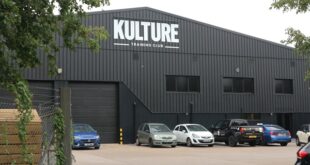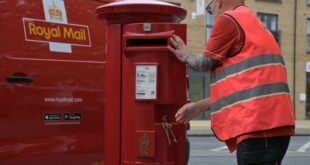This series profiles the members of edie’s 30 Under 30 – a nomination-based community of 30 hugely talented young sustainability and energy professionals who have already achieved great things or are showing fantastic promise. Next up: Rhea Horlock, CSR manager at NHS Property services.
Rhea has been with NHS Property Services, where she works as one half of a two-person CSR team, for a year
The future of business leadership starts right here. Earlier this year, edie unveiled the inaugural members of its brand new 30 Under 30 initiative – a group of bright and ambitious rising sustainability and energy stars from across the UK.
After being nominated by their colleagues and impressing judges from Global Action Plan and the Institute of Corporate Responsibility and Sustainability (ICRS), this cohort of youthful visionaries now benefit from an unrivalled opportunity to connect with one another and co-develop solutions to some of the most pressing environmental and social challenges of our time.
In this weekly series, we will be sharing their stories and successes beyond the group, giving edie readers insight into the minds of those who will be leading the charge in creating the low-carbon, resource-efficient economies of the future.
This week, it’s the turn of Rhea Horlock, CSR manager at NHS Property Services – a body which owns and manages 11% of NHS England’s property portfolio.
How I got to where I am now:
“I studied biology as an undergraduate degree at the University of Southampton and when graduation got close, I wasn’t exactly sure what I wanted to do. So I chose to do a masters in one of my favourite topics – corporate environmental management – at the University of Surrey.
“This was a really good course; we had lots of opportunities to meet and hear from people in sustainability in various industries, and to do placements. My first placement was at an energy consultancy, and my second was at a local boarding school, with a focus on decarbonising their energy.
“After graduating, I lived abroad for a while – but when I saw that a sustainability role had come up at O2in the UK, I knew I had to apply. The role was in the CR and environment team and was mainly focused on strategy, reporting and certifications for products and services.
“I was there for almost three years and hugely enjoyed the work. One of my last tasks for O2 was to work on a grant funding scheme for young people developing digital solutions to environmental problems.
“But it was time for a new challenge and I moved to Royal Mail, overseeing reporting and submitting the business to benchmarks and indices like Dow Jones. Reporting takes up more than two months a year but is really useful for building strong relationships with the right people, which, in this case, meant we could work with partners to develop the environment strategy.
“The role was fixed-term for a year and, after that, I moved to the role I’m in now. The NHS is a very interesting organisation to work for and, because our team is two people, my remit covers almost everything under the CSR umbrella.”
My biggest career achievement to date has been:
“What I’m doing now is what makes me proudest, because you can see the difference that it’s making to people’s lives.
“Anyone that’s booked a GP appointment or visited A&E will know that primary care services are stretched, so the work we’re doing has the potential to have a real impact on that.
The biggest challenge I have encountered along the way is:
“Language, which has been a recurring challenge. There are so many things that you could call a CSR department or report, for example, and I think there’s a lack of understanding of those terms in most boards and workplaces. As a result, you end up with quite a lot of buzzwords, from ‘carbon-positive’ to ‘100% sustainable’.
“This is a cross-industry issue and more work is needed to clarify what these terms mean if sustainability teams are to gain the support of senior leadership and the public.”
If I had to describe my generation in one word or phrase, I would say:
“Entitled around environmental and social issues, but rightfully so.”
A successful 2019-20 for me looks like:
“One of the big pieces of work going on at the moment is a project to determine how we can best use internal and external space for the wellbeing of communities while improving the environmental footprint of our property portfolio. This covers everything from how we are using old equipment and furniture, to boosting biodiversity.
“I’d also like to see our social programme really get bedded in and to be starting to see the impact it’s having on local communities and various healthcare systems. Personally, I’d like to use this as a starting point to work more on the links between social and environmental value. The WHO says that climate change is the greatest threat to human health to date, but a lot of conversations focus solely on the planet.”
In five years’ time, I would like to be:
“Continuing to work on causes that I’m passionate about – ideally in an organisation where sustainability is aligned with the business strategy, so I can deliver progress in a cross-functional way.
“I think there will always be a role for CSR professionals but that where we sit in the business is likely to change in the next few years as we move to a more integrated approach.”
Outside of my career, I enjoy:
“Running, like a lot of the other 30 Under 30! I’ve run a few marathons but, at the moment, it’s cross-country season, which is taking up a lot of my free time.
“I think that there’s a massive importance in keeping yourself fit and keeping a clear head, which is probably to be expected given where I’m working.”
“Sustainability and CSR is a tool to do better business and should, therefore, be a core part of your business. It’s not an add-on.
“Until your sustainability targets are properly integrated into your business strategy, it’ll always be harder to achieve them because there will be clashing priorities. Some businesses are already purpose-driven and have their mission fully aligned with their targets, but that’s currently the exception rather than the rule.”
My key piece of advice for any young professionals entering my industry today is:
“Don’t be afraid to say yes; take on opportunities which may seem left-field.
“At Royal Mail, I was asked to organise a World War 1 remembrance church service for the defence secretary, for example. My initial reaction was ‘I don’t know what I’m doing’, but, through the project, I met so many new people and learned so much in terms of stakeholder engagement and events management. All of that massively helped in my day-to-day role.
“In short, don’t write something off because it’s not what you specialise in. You never know what you’re going to get out of it or where it’s going to lead you.”
The full Class of 2019 series can be viewed here.
To stay in the loop for 2020 nominations for the 30 Under 30, email edieleaders@fav-house.com.
edie staff
Source link



